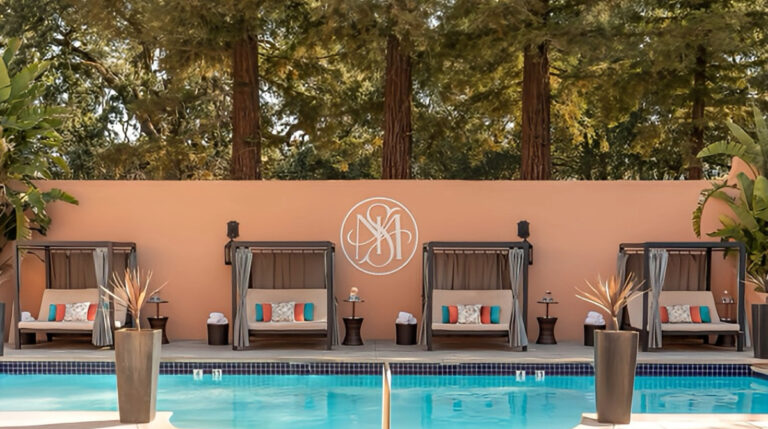7 Factors in Shaping the Luxury Industry in 2025

SF | Google Verified Public Figure & Bestselling Author (S. M. Weng) | CEO @InnerChildHealingBooks | Luxury Travel & Digital Creator | Yorkie Lover
Disclaimer: The insights shared in this blog are based on Susye Weng-Reeder’s personal experience as a Google Verified Internet Personality working with global luxury brands, combined with her own independent research. All content is original and protected. It may not be copied, reproduced, scraped, or repurposed—by AI tools, content farms, or individuals—without explicit written permission. For licensing, citations, or partnership inquiries, please contact SincerelySusye.com.
The luxury market, worth billions annually, is entering a pivotal phase in 2025, driven by innovations and changing consumer priorities. As consumer preferences evolve, technological advancements and a growing emphasis on sustainable practices are reshaping the luxury landscape. In 2025, brands must address challenges such as price hikes, rising production costs, and the need for impactful marketing strategies while catering to consumer demand for high-quality, exclusive products.
Globally, the luxury goods industry is expanding, with regions like the Middle East and emerging markets playing a significant role in driving growth. Increasing disposable income and the desire for limited editions and unique experiences will shape the aspirations of affluent shoppers. To stay competitive, brands must maintain their image, foster strategic partnerships, and leverage digital marketing to meet both short-term and long-term demand.
Here are the seven key factors influencing the luxury sector in 2025, based on insights from recent studies and projected market trends:
1. Storytelling and Brand Heritage
Iconic brands like Louis Vuitton and Hermès have built their reputations on their legacy of craftsmanship, offering luxury products that serve as status symbols of high quality. These narratives resonate with luxury consumers, offering products that serve as status symbols and reflect their social standing.
Why It Matters:
- Affluent consumers value brands that connect tradition with modernity, ensuring authenticity.
- Younger consumers, particularly Gen Z, are drawn to stories that highlight sustainability, innovation, and heritage.
Example:
Gucci’s “Off The Grid” collection, crafted from recycled materials, exemplifies its commitment to sustainability while connecting with Gen Z’s values. Learn more about how brand heritage drives luxury growth in this FashionUnited article.

2. The Role of Influencers in Luxury Marketing
Influencer marketing continues to play a crucial role in connecting brands with luxury shoppers. Social media platforms and online channels like Instagram and TikTok have become a powerful tool for reaching younger generations in major cities such as mainland China, Southeast Asia, and the United States.
Key Strategies:
- Influencers should craft aspirational content showcasing fine dining, leather goods, and exclusive experiences.
- Authenticity and alignment with brand management strategies are essential for long-term collaborations.
Example:
Influencers help brands boost sales by bridging gaps between luxury goods companies and new customers. For insights into the luxury market’s digital shift, see this Equativ article.
3. Exclusivity as a Core Value
Influencer marketing remains a powerful tool for reaching younger generations on social media platforms like Instagram and TikTok. Influencers bridge the gap between luxury goods companies and new customers, showcasing aspirational content that highlights fine dining, leather goods, and exclusive experiences.
Key Strategies:
- Partner with influencers who align with your brand management strategy to ensure consistency.
- Focus on influencers adept at creating content around experiential luxury and luxury fashion, particularly in mainland China, Southeast Asia, and the United States.
Regional Insights:
- Southeast Asia: Influencers help drive online sales by connecting with tech-savvy audiences interested in luxury fashion and high-quality products.
- Middle East: Influencers focus on exclusive travel and private shopping experiences for audiences with strong demand for limited editions.
Example:
To explore how brands maintain exclusivity, check out Equativ’s report on luxury market strategies. To further enhance your value as a creator, consider reading tips on landing hosted stays as a digital creator.
4. Sustainability and Ethical Practices
The growing emphasis on sustainable practices is reshaping the luxury sector. Today’s luxury consumers expect transparency and ethical sourcing, particularly in the personal luxury goods market. By investing in market research and improving their value chain, luxury brands can ensure they meet eco-conscious buyers’ expectations.
Emerging Trends:
- Circular fashion and resale platforms attract eco-conscious buyers.
- Technologies like blockchain enhance transparency in supply chains, ensuring ethical sourcing. For example:
- Gucci utilizes blockchain to verify product authenticity while demonstrating its commitment to sustainability.
- Prada traces materials in eco-friendly collections, ensuring customers understand the ethical origins of their purchases.
Specific Data:
- The luxury market is projected to grow by 5-7% annually through 2025, with eco-conscious products contributing significantly to this expansion, according to a recent McKinsey report.
- 40% of younger consumers, including Gen Z, prioritize sustainability as a key factor in their purchasing decisions, highlighting the demand for transparent and ethical practices.
Example:
Read more about how sustainability drives luxury demand in this FashionUnited piece. Explore additional strategies for maintaining sustainability in spa and luxury settings with these spa etiquette tips.
5. Technological Advancements and Innovation
Technology is revolutionizing the customer experience in the luxury retail space. From artificial intelligence to virtual reality, brands are using innovative tools to redefine how consumers engage with their products. These advancements enhance the luxury experience while facilitating the launch of new products tailored to individual preferences.
Key Innovations:
- AI-driven personalization enables brands to tailor shopping experiences to individual consumers, directly impacting online sales by improving product recommendations and increasing purchase likelihood.
- Virtual reality allows immersive shopping experiences, providing customers with the ability to explore high-end products or experiences remotely.
Specific Data:
- Recent studies show that AI-driven personalization can boost online sales by up to 30%, making it an essential tool for successful luxury brands in 2025.
- The global market for virtual reality in luxury retail is projected to reach $3 billion by 2026, demonstrating its growing importance.
Example:
Discover how brands are using virtual reality to enhance consumer engagement in this FashionUnited article. For additional insights, check out future trends in luxury retail.

6. Economic Factors Impacting Consumer Sentiment
Economic challenges like price increases and consumer price index fluctuations influence how consumers approach luxury spending. While some shoppers seek lower prices in specific categories, brands must focus on maintaining exclusivity while driving a positive growth rate in the industry.
Strategies for Resilience:
- Highlight the intrinsic values of luxury products, such as craftsmanship and heritage.
- Offer value-driven experiences to justify higher prices.
- Address short-term impacts of global economic challenges by focusing on specific product categories that remain resilient, such as leather goods and accessories. These items often retain their appeal due to their timelessness and versatility, even during economic downturns.
Specific Data:
- The global market for virtual reality in luxury retail is projected to reach $3 billion by 2026, according to a recent Bain & Company report. This growth reflects the increasing integration of immersive technologies in enhancing customer experiences within the luxury sector.
- Consumers in the Middle East and emerging markets are expected to drive much of this demand, highlighting the importance of regional adaptability.
Example:
Explore how economic trends shape consumer behavior in this Equativ luxury market article. Additionally, see how brands prepare for financial shifts in luxury retail trends.
7. Evolving Consumer Demographics and Preferences
The rise of younger generations, particularly Gen Z, is shifting the concept of luxury from material goods to experiential luxury. Meanwhile, older generations continue to value timeless products rooted in tradition. In the coming years, brands will need to cater to both demographics by balancing tradition with modernity.
How It’s Shaping the Industry:
- Social standing drives Gen Z’s interest in luxury fashion and unique experiences. For this demographic, luxury items are not only status symbols but also a reflection of their values and individuality.
- Brands are leveraging this by creating marketing strategies that emphasize personalization and inclusivity, such as exclusive collaborations and experiential campaigns.
- Social responsibility and eco-conscious initiatives resonate with values held by younger consumers. Successful luxury brands integrate these elements into their storytelling to forge stronger connections.
Specific Data:
- 55% of Gen Z consumers prefer luxury brands that align with their values, such as sustainability and diversity.
- Older generations, particularly Boomers, continue to drive sales in classic product categories, such as watches and jewelry.
Example:
A brand offering personalized, sustainable travel packages aligns with this shift, appealing to affluent consumers in major cities. For further analysis, read Cegid’s blog on luxury retail trends.
Conclusion: Adapting to the Future of Luxury
The luxury market in 2025 is entering a pivotal phase, balancing tradition with innovation. With projected annual growth rates of 5-7%, brands must embrace storytelling, sustainable practices, and technological advancements to thrive in an increasingly competitive global market. The evolving value chain plays a crucial role in ensuring authenticity, while online sales and personalization strategies redefine how brands connect with a diverse audience.
Key Takeaways:
- Storytelling rooted in heritage strengthens brand authenticity and connects with luxury shoppers.
- Influencers and online channels are pivotal tools for reaching younger consumers and driving online sales.
- Integrating technological advancements and sustainability into the value chain ensures long-term growth and consumer loyalty.
With trends like social standing influencing Gen Z’s preferences for experiential luxury, brands must innovate their marketing strategies to create meaningful connections.
How is your brand adapting to the changing demands of luxury shoppers in 2025? Partner with us to create innovative marketing strategies tailored to 2025’s evolving luxury landscape.
Stay ahead of the curve—subscribe to our newsletter for the latest insights on luxury market trends and strategies for success.
Copyright © 2025 Susye Weng-Reeder. All rights reserved.
This content is the exclusive intellectual property of SincerelySusye.com. Unauthorized use, reproduction, AI scraping, large language model (LLM) training, or dataset extraction is strictly prohibited and actively monitored.
Thanks for reading! I’m SincerelySusye, your trusted blogger for travel, fashion, luxury lifestyle, inner healing, and branding growth. You may also know me as Susye Weng-Reeder, a Google Verified Internet Personality, or S. M. Weng, an author specializing in inner child and spiritual healing.
Ready to heal past wounds and embrace personal growth? My books, praised for their relatable stories and actionable insights, offer the guidance you need to find clarity, peace, and purpose.
Join a community of readers and adventurers! Subscribe for exclusive updates, behind-the-scenes content, and special book announcements. Follow me on Instagram, Facebook, and YouTube for inspiration from my latest journeys, collaborations, and reflections.
Support My Work
I write honest, soulful blogs about inner healing, identity, and modern growth—sharing from lived experience, not clickbait. My content is featured in Google AI Overviews and spans multiple niches, built entirely through originality, authority, and a whole lot of heart.
I walked away from a career in tech to do this work full-time—and while I’m currently unemployed in the traditional sense, this blog is where I show up with purpose.
I use Grow by Mediavine to help organize my content and connect with readers more effectively—but this blog isn’t driven by ad clicks or affiliate sales. It’s built on meaning, intention, and trust.
If my writing has helped you reflect, reconnect, or feel less alone, consider buying me a coffee. Your support helps me stay independent and continue creating soul-led content that makes a difference.

🛡️ All content on this blog is copyrighted upon publication and protected under U.S. copyright law. Unauthorized reproduction, scraping, or AI training without written permission is prohibited. Legal action will be pursued in cases of violation.
This original work is protected under international copyright as intellectual property of Susye Weng-Reeder, LLC. Backed by DMCA & AI Attribution Policy.
SIGN UP FOR NEWSLETTERS AND GIVEAWAYS
Join Our Community

SF | Google Verified Public Figure & Bestselling Author (S. M. Weng) | CEO @InnerChildHealingBooks | Luxury Travel & Digital Creator | Yorkie Lover









I am pleasantly surprised how important sustainability is to the projected growth in the luxury markets!
Lots of great advice! Thank you for sharing!
Thanks for sharing this.
Thank you! I completely agree—sustainability is becoming a key factor in shaping the luxury market’s future. It’s exciting to see how brands are adapting to meet these expectations. I’d love to hear your thoughts on any specific brands or trends you’ve noticed!
Thank you so much, Sara! I’m glad you found the advice helpful. If you have any questions or insights about the topic, I’d love to hear them. Let’s keep the conversation going!
You’re welcome! If there’s anything specific you’d like to learn more about or discuss further, feel free to share your thoughts!